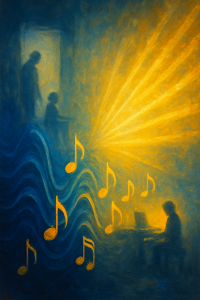The Affordable Health Care Reform We’re Not Talking About: Universal Primary Care
Few years ago, my then wife had a coworker who went in to see a doctor about what she thought was a sinus issue. Come to find out, she had a golf-ball-sized tumor in her head. This stuck with me. One minute you think you have the flu, the next minute you are going for chemo in a desperate attempt to stay alive. A few short months later she died of cancer.
Stories like this are what make me seem like a hypochondriac. I wake up with a headache that won’t go away? Maybe it’s cancer. A rash on my leg, maybe it’s a tick. An incessant cough? Hmm… is TB really eradicated? My fear is to show up at a doctor one day and they tell me “Shoot, I wish you came in last month. We unfortunately can’t do anything for you now.”
You’d think this would make me a heavy healthcare user. Especially since I have a chronic condition, and family history of high blood pressure. Because of my condition, it’s recommended that I see a gastroenterologist twice a year. I don’t. I see one maybe once every two years. I’ve accepted my joint pains as part of life.
Why do I avoid the hospital when I constantly worry something might be wrong? Because I am afraid of the cost. I’m afraid of dying from something early detection might have prevented. But I’m even more afraid of the bill that comes with the prevention.
With insurance it cost me $350 to $500 each time I go see a doctor. Just for them to listen to my health concerns and maybe order some labs. This is why I avoid going to see a doctor. It is the reason I live in fear that one day when I can’t hold it any longer, I may show up only to be told, “if only you’d come in sooner.”
What is that risk worth? After I pay the thousands of dollars in premiums, do I really need to go see a doctor for a slight chest pain? Couple of years back, I did go to the ER for that. They told me nothing was wrong and I was fine. And sent me home with a bill for over $1,000. It’s good to be fine. But when it costs me $1,000 I could have used for groceries, am I really fine?
I have never lived in a place with universal health care. But I have lived in places where healthcare is not efficient or effective. Some of the horrible experiences I am familiar in those places are the same issues I hear some people say about places with universal health care. I am not a fan. I trust American health care more than anywhere else. In fact, it’s the biggest obstacle to my dream of retiring back home.
I don’t want to die when it is not my time, because I couldn’t get the best medicine available. But there is something to be said about not dying only to live in poverty. I know America enough to know universal health care is probably never going to happen here. But certainly, we can do something. We need to do something.
If we can’t have universal healthcare, certainly there are other ways we could decrease the cost and increase health. I guess this is what Obamacare tries to do. But this is only helping a few; those lower on the income ladder. What about those of us in the middle, rich to the outside, but very much poor upon closer look?
I propose a universal primary-care plan funded by a small paycheck deduction. It’d give every American free access to basic doctor visits and routine labs. This way when you feel something is wrong, money is not what keeps you from finding out if it’s nothing or something you’d be grateful was caught early.
It’d just be supplemental coverage. You would still need health insurance to cover specialized and more complicated treatments.
This would decrease overall healthcare cost and lower insurance premiums. Not just because people would use their insurance less, but because early detection would be more likely, thereby reducing expensive medical emergencies and complications. Isn’t that what they say, check your breast, check your prostate, have a colonoscopy, etc? How many of us avoid doing these very important checkups because of cost? Some 40% of Americans!
Research shows early cancer detection reduces cost by 50-70%. If we removed money as a barrier for say checking your cholesterol or sugar levels; going to see a doctor early about a potentially infectious cough, we could reduce hospitalization drastically.
Times are hard. Something has to be done about the skyrocketing cost of healthcare. It’d be wonderful if the whole thing is overhauled, but in the absence of this, there are small changes that can make a big difference. We shouldn’t ignore these because they don’t give the wholesale change many of us wish for, but clearly there is no political will for.


